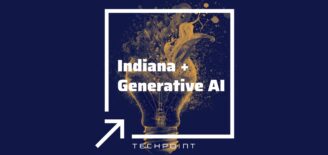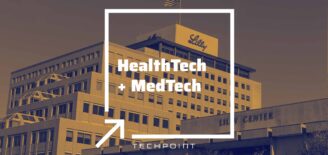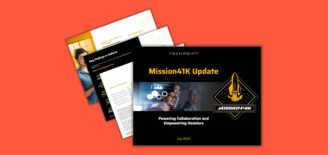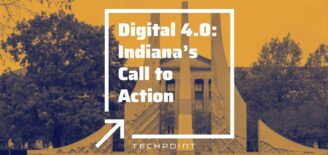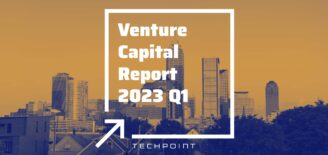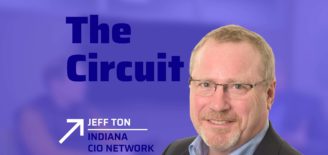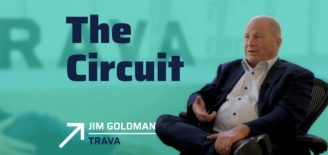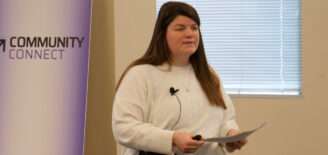House Bill 1470: Creating the path for data-driven decisions in Indiana
In today’s world, data is knowledge. That’s why it was one big leap for Indiana when the House and Senate voted to pass House Bill 1470 — also known as the Open Data Bill — to formally codify the open sharing of information between agencies.
Although the bill was passed just this year, Indiana has a history of inter-agency data sharing to support state initiatives. From the Indiana Fair Information Practices Act facilitating information sharing across agency silos in 1978, to establishing Government Efficiency & Financial Planning within the Office of Management and Budget in 2006, information sharing has been supported for quite some time.
How House Bill 1470 Came to Be
“Data-driven decision making allows us to make better-informed policy decisions and improve services and programs,” says Darshan Shah, Chief Data Officer of the Management Performance Hub. “But, more importantly, we have to continue to make sure we are efficient with our resources while driving better policy decisions and improved services and programs. With that in mind, I think that’s really the origin from which the vision of HB 1470 was founded.”

Darshan ShahChief Data Officer
While there were many supporters of the bill, Darshan credits three individuals with truly moving the legislation forward: Indiana Governor Eric Holcomb, the author Representative David Ober, and Senator Brandt Hershman, a key sponsor for the bill.
“It’s really the result of those three individuals understanding the power and importance of data-driven decisions and policymaking across the state,” says Darshan. “Governor Holcomb has five pillars to move the state forward, and pillar number five is a focus on providing great government service at great value to taxpayers. We’d like to think that HB 1470 is central to that theme.”
Overall, the community has been extremely supportive of the legislation as well. “We’re lucky in the fact that driving decision making with data is really an interest of all state agencies and the broader public,” says Darshan. “That being a priority, and the fact that it’s been embraced by the broader community, has been extremely encouraging and exciting for us.”
The Benefits of House Bill 1470
HB 1470 brings a variety of benefits to Indiana. “First, it codifies the program to collect, analyze, and exchange government information from, but more importantly to, state agencies,” says Darshan. “Secondly, it codifies the program to make government information available externally to agencies, researchers, non-profits, community organizations, universities, NGOs, the general public — the list goes on and on.”
While the ultimate goal is sharing and using information efficiently to make better decisions, HB 1470 creates new opportunities for programs and services in the state. “The idea is to unlock that information in order to take advantage of the strengths we have in our communities to further improve our collective programs and services using data as our guide,” says Darshan.
As a result of the Open Data Bill being passed, Darshan’s position, the state’s chief data officer (CDO) with the Management Performance Hub (MPH), was created to help facilitate the goals of HB 1470. As the CDO, he will be responsible for helping state agencies establish KPIs to measure and improve performance; leverage data and analytics to drive programs and efficiencies; and share data with community partners in order to improve transparency and drive innovative solutions.
What’s on the Horizon for HB 1470
Now that HB 1470 has passed, data is already being used to further Indiana’s initiatives.

“We have a number of key projects that are currently in progress,” says Darshan. “The beauty of getting the data unlocked from the state government is it allows us to be able to share information between agencies, on behalf of agencies, in order to be able to continue to improve services and programs.”
Specifically, Governor Holcomb and MPH are focused on five different projects to support the state:
- Key Performance Indicators: establishing KPIs to measure and improve government performance across executive state agencies. Allows MPH to be able to see where they’re doing well, where there are areas for improvement and continue to move the dial.
- Drug Prevention: gathering data to better guide the efforts of the Governor and Director for Drug Prevention, Treatment, and Enforcement, Jim McClelland, to tackle the opioid drug epidemic. MPH is working with 16 agencies to collect and share information to unlock new insights into this fight.
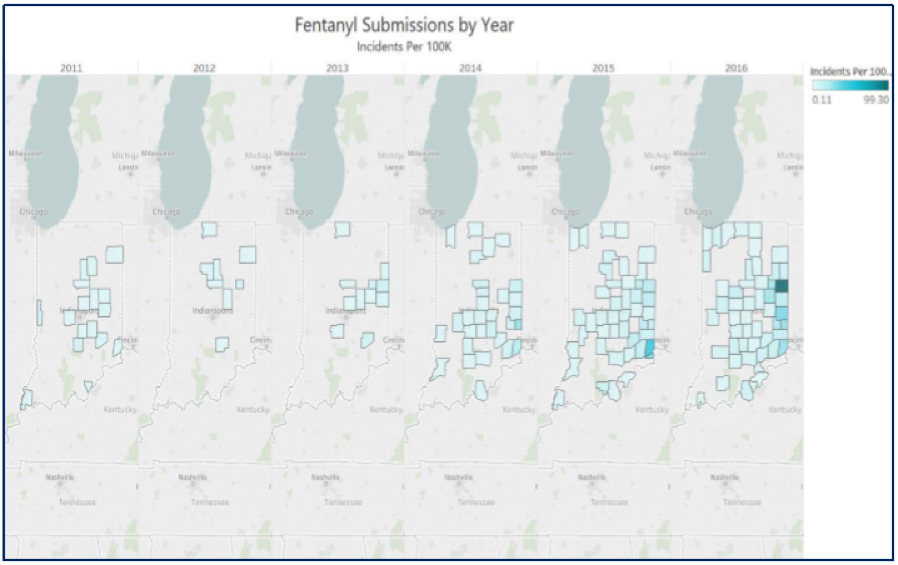
- Indiana State Police Partnership: using a mapping tool created by MPH that allows citizens, law enforcement, and first responders to visualize when and where crashes are likely to occur throughout the State. The goal is to reduce the number of accidents and fatalities. According to Darshan, early returns have already shown a reduction in the number of accidents in 2017 compared to 2016.
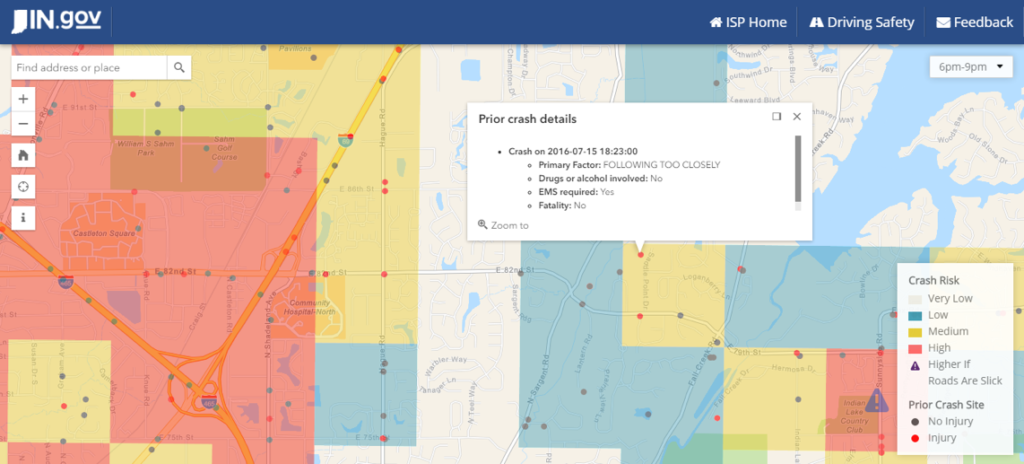
- Education & Workforce Development: working to build a system and community of researchers to unlock insights to be able to determine what educational programs are impacting wages across the state. MPH has partnered with four different agencies across state government to create what they call a longitudinal record for education, workforce, and social services.

- Medicaid Optimization: reviewing and unlocking what MPH considers to be an “unprecedented amount of Medicaid claims data” according to Darshan. The goal is to use the information to help improve the health and wellbeing of folks across the state.
“There are a lot of really cool things happening from an MPH standpoint,” says Darshan. “One of the key tenets that we have here is to ensure that we’re understanding key challenges so we can add that layer of data and information to help organizations.”
Why MPH Wants to Partner with the Tech Community
While the Management Performance Hub is established under the Office of Management and Budget, Darshan considers MPH to be a part of the tech community in Indiana.
“When I look at MPH, in many ways, we are like a startup,” says Darshan. “We’re an organization that was founded to be able to further the data analytics needs we have across state government, and we truly believe that we’re a part of the broader tech community.”
As a member of the tech community, MPH specifically wants to find ways to partner with technology companies in the state to further Indiana’s initiatives. “None of these projects can be done in isolation. We have opportunities to crowdsource solutions, and we want to continue to figure out opportunities to partner with technology companies in meaningful ways,” says Darshan.
“TechPoint was a huge supporter of HB 1470 and realizes that MPH is very much a member of this community,” says Darshan. “We, as an organization, are very supportive of what TechPoint is doing with furthering the technology interest across the city and state. And vice versa, I think TechPoint fully understands and realizes the value of being able to unlock data to continue to further the technology and data needs across the community.”
Want to chat with the Management Performance Hub about potential partnership opportunities? Contact their team now.


